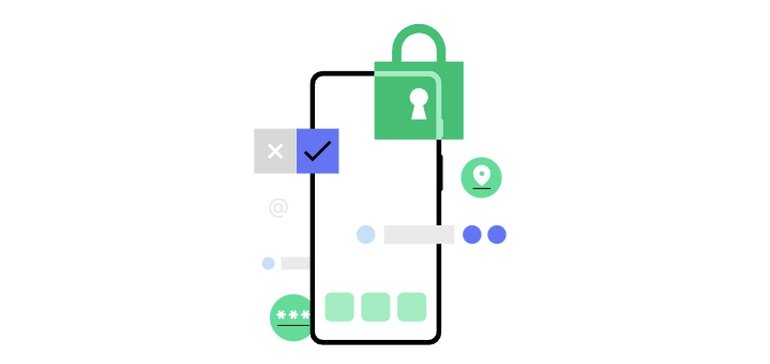Mobile App Development, Social Media
Google Outlines ‘Privacy Sandbox’ Initiative for Android, the Next Stage of the Data Privacy Shift
- By Brett Belau
17 Feb

Apple’s ATT update, which now prompts users of iOS apps to opt in or out of data tracking, has caused major disruption in the digital ad space, with Meta alone estimating that the change will cost it some $10 billion this year. And now, we could be set for the next stage of that shift, with Google announcing that it’s actively developing its Privacy Sandbox for Android, which is its equivalent data privacy control for Android users.
As explained by Google:
“Today, we’re announcing a multi-year initiative to build the Privacy Sandbox on Android, with the goal of introducing new, more private advertising solutions. Specifically, these solutions will limit sharing of user data with third parties and operate without cross-app identifiers, including advertising ID.”
Google’s also developing similar data privacy controls for the web, but the Android variation will likely have a bigger impact, given the significance of the mobile advertising marketplace, and the use of personalized targeting via apps.
Though Google has said that it’s aiming to work with developers to minimize disruption – while also taking a shot at Apple’s approach:
“We realize that other platforms have taken a different approach to ads privacy, bluntly restricting existing technologies used by developers and advertisers. We believe that – without first providing a privacy-preserving alternative path – such approaches can be ineffective and lead to worse outcomes for user privacy and developer businesses.”
As part of this, Google’s been as open as it can in the development of its Privacy Sandbox initiatives, which most recently saw the introduction of ‘Topics’ as its key audience targeting replacement, rather than cookie-tracking.
“With Topics, your browser determines a handful of topics, like “Fitness” or “Travel & Transportation,” that represent your top interests for that week based on your browsing history. Topics are kept for only three weeks and old topics are deleted. Topics are selected entirely on your device without involving any external servers, including Google servers.”
That concept will also, theoretically at least, carry over to the Android version of the same, which will enable ongoing audience targeting by topic categories, as opposed to more granular, personalized reach.
In order to ensure that it builds these new tools in partnership with developers, Google has pledged to support its existing ad tools for at least two more years, while it will also provide ‘substantial notice’ ahead of any change.
That is a lot different to Apple’s approach, which basically threatened to launch its ATT update for months, and didn’t tell anyone when, exactly, it would be coming, till basically it went live. Businesses then needed to scramble to mitigate any data losses, which, as in the case of Meta, has led to significant impacts, as it works to build new tools and solutions to counter the change.
Ideally, Google’s approach will allow more time and insight to build alternative solutions, while Topics targeting will, at the least, give ad partners some insight to go on, rather than leaving them in the dark. Google has also pledged to ensure that its new systems don’t give preferential treatment to its own ad products or sites. Which is another criticism that’s been leveled at Apple, and ideally, with longer lead and development time, that will lessen any potential impacts as a result of the enhance privacy shift.
Though there will be impacts. Over 2.5 billion people around the world use Android-powered devices, significantly more than those on iOS, and if Google doesn’t get this change right, it could have a disastrous impact on the digital ads ecosystem, leading to higher costs, and lower campaign performance, across the board.
Which is probably why all brands should be considering their data sources, and how they maintain connection with their audiences, and target future customers – because as these changes come into effect, you will need to update your approach to maximize performance and optimize spend.
There’s some time to go before this becomes a major headache, but it’s worth considering your approach now, and implementing your own data collection and community building efforts to prepare.
You can read more about the development of Privacy Sandbox for Android here.
Source: www.socialmediatoday.com, originally published on 2022-02-16 18:26:52
Connect with B2 Web Studios
Get B2 news, tips and the latest trends on web, mobile and digital marketing
- Appleton/Green Bay (HQ): (920) 358-0305
- Las Vegas, NV (Satellite): (702) 659-7809
- Email Us: [email protected]

© Copyright 2002 – 2022 B2 Web Studios, a division of B2 Computing LLC. All rights reserved. All logos trademarks of their respective owners. Privacy Policy

![How to Successfully Use Social Media: A Small Business Guide for Beginners [Infographic]](https://b2webstudios.com/storage/2023/02/How-to-Successfully-Use-Social-Media-A-Small-Business-Guide-85x70.jpg)



![How to Successfully Use Social Media: A Small Business Guide for Beginners [Infographic]](https://b2webstudios.com/storage/2023/02/How-to-Successfully-Use-Social-Media-A-Small-Business-Guide-300x169.jpg)


Recent Comments